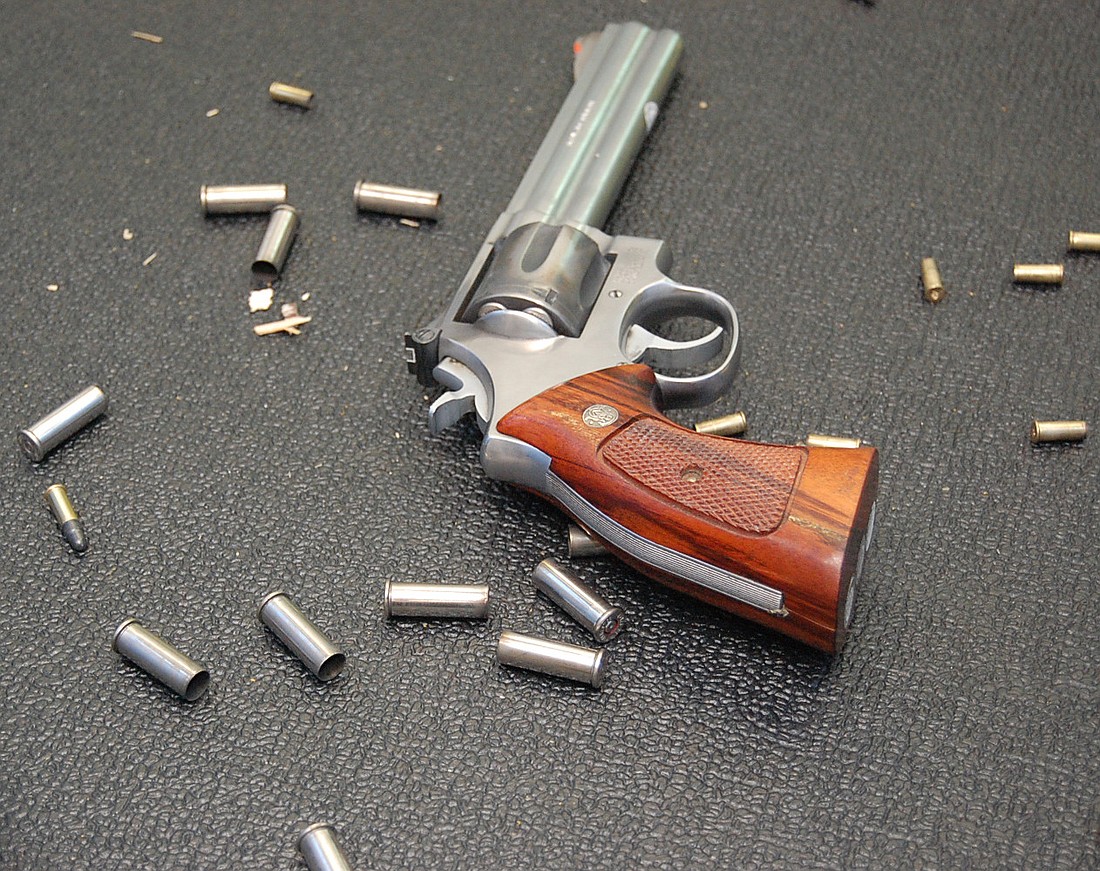- April 23, 2024
-
-
Loading

Loading

The former president of the National Rifle Association is fighting for Gov. Rick Scott’s approval on a bill that would restrict gun purchases by those being treated for mental illness.
Marion Hammer, who became a lobbyist in Florida for the NRA after her presidency ended and is also the founder of the United Sportsmen of Florida, said she supports the bill because it only restricts gun ownership to those who shouldn’t own guns anyway.
The bill, HB 1355, would prohibit the sale of guns to people who voluntarily undergo outpatient mental health treatment after being given an involuntary examination under the Baker Act — but only if certain provisions are met.
The bill passed the state legislature with only one vote against it and now awaits Scott’s signature before it becomes law. It has drawn attention from many, some urging Scott to veto the bill and others urging him to sign it.
“It’s the right thing to do,” Hammer said. “Keeping the guns out of the hands of dangerous people with mental illnesses is what everybody should want to do.”
However, critics of the bill say it hinders Second Amendment rights. Others say it is too easy for law enforcement to enact the Baker Act and question what would happen to those who have recovered from their mental illnesses and then wish to purchase firearms.
Under current law, dealers are not allowed to sell firearms to those who have been committed to a mental institution. If signed, the bill would expand that restriction to include people who have been given an involuntary examination under the Baker Act and then have voluntarily submitted themselves to outpatient treatment — but only if several provisions are met.
Before gun ownership is restricted, an examining physician must first have found that the person is a threat to his- or herself or to others. The physician must also verify that if the person had not submitted to voluntary treatment, involuntary treatment would have been mandated.
Additionally, before agreeing to treatment, the person must have received notice that such treatment might restrict future gun ownership. That person must acknowledge receipt of such notice in writing.
Finally, a judge or magistrate must have reviewed the record classifying a person as a danger and ordered that the record be submitted to the Florida Department of Law Enforcement.
If those four requirements are met, then gun ownership would be limited.
“(The bill) does not cover people who voluntarily go to private counseling for help,” Hammer said.
Currently, those held under Baker Act who are later involuntarily placed in treatment programs are entered into the National Instant Check System, the database gun dealers use to check ownership eligibility prior to a sale. Those who voluntarily enter treatment are not entered into the system, even if they would have been forced to enter treatment if they had not first agreed to do so.
“The problem is that some of these dangerous people with mental illnesses, who are known to be a danger to self or others, immediately revoke their voluntary agreement as soon as they reach the treatment facility,” Hammer said in a letter urging NRA members to support the bill. “They must then be released within 24 hours. They do it repeatedly. The system has become like a revolving door and is failing.”
But forcing patients to revoke their gun rights might make them angrier rather than safer, said David Kimsey, a Miami resident, in a comment on Scott’s Facebook page, in which Kimsey urged Scott to veto the bill.
“(It) will turn a pacifist patient into a violent one, resentful of those (who) claim to protect them,” Kimsey wrote. “It’s like cornering and caging an animal.”
Another opponent, James Dollason, of Navarre, said the bill would “deter people from getting help if they really need it” because doing so would risk “losing their right to keep and bear arms.”
Scott has until July 1 to either sign or veto the bill.